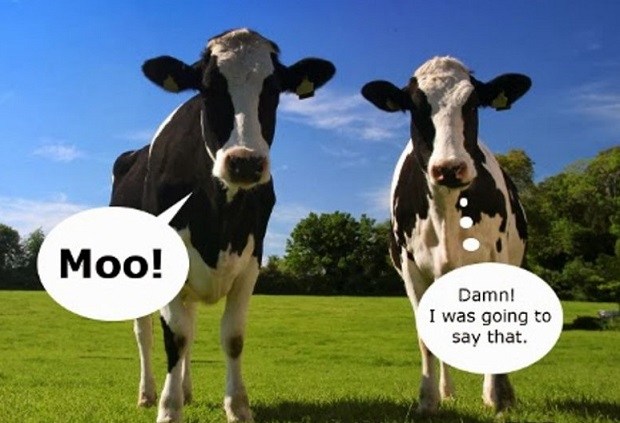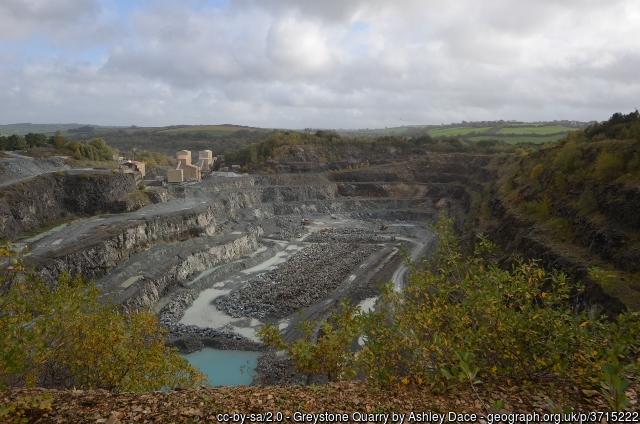It’s the season to reflect on where we’ve come from, where we’re going to and the world we live in. What better way to help us understand the workings of the world - economically and politically - than by using two cows. It's a technique that’s been around some time to explain all manner of things. Here's just a few, courtesy of the world wide web: Feudalism You have two cows. Your lord takes some of the milk.
Pure socialism You have two cows. The government takes them and puts them in a barn with everyone else's cows. You have to take care of all the cows. The government gives you as much milk as you need.
Bureaucratic socialism You have two cows. The government takes them and puts them in a barn with everyone else's cows. They are cared for by ex-chicken farmers. You have to take care of the chickens the government took from the chicken farmers. The government gives you as much milk and as many eggs as the regulations say you should need.
Pure communism You have two cows. Your neighbours help you take care of them, and you all share the milk.
Applied communism You have two cows. You have to take care of them, but the government takes all the milk.
Fascism You have two cows. The State takes both and sells you some milk.
Dictatorship You have two cows. The government takes both and shoots you.
Totalitarianism You have two cows. The government takes them and denies they ever existed. Milk is banned.
Anarchy You have two cows. Either you sell the milk at a fair price or your neighbours try to kill you and take the cows.
Environmentalism You have two cows. The government bans you from milking or killing them.
American democracy The government promises to give you two cows if you vote for it. After the election, the president is impeached for speculating in cow futures. The press dubs the affair "Cowgate".
Political correctness You are associated with (the concept of "ownership" is a symbol of the phallocentric, warmongering, intolerant past) two differently-aged (but no less valuable to society) bovines of non-specified gender.
Counterculture Wow, dude, there's like... these two cows, man. You have *got* to have some of this milk. I mean totally.
Therapyism You have two cows. One is a metaphor for your inner child. The other is the manifestation of anger toward a parental figure. You take one of the cows on walks through grassy fields by the gentle ocean waves. The other you beat with an anger bat.
Bureaucratism You have two cows. At first the government regulates what you can feed them and when you can milk them. Then it pays you not to milk them. After that it takes both, shoots one, milks the other and pours the milk down the drain. Then it requires you to fill out forms accounting for the missing cows.
Traditional capitalism You have two cows. You sell one and buy a bull. Your herd multiplies, and the economy grows. You sell them and retire on the income.
Venture capitalism You have two cows. You sell three of them to your publicly listed company, using letters of credit opened by your brother-in-law at the bank, then execute a debt/equity swap with an associated general offer so that you get all four cows back, with a tax exemption for five cows. The milk rights of the six cows are transferred via an intermediary to a Cayman Island Company secretly owned by the majority shareholder who sells the rights to all seven cows back to your listed company. The annual report says the company owns eight cows, with an option on one more.
American capitalism You have two cows. You sell one, and force the other to produce the milk of four cows. Later, you hire a consultant to analyse why the cow has died.
French capitalism You have two cows. You go on strike, organise a riot, and block the roads, because you want three cows.
Italian capitalism You have two cows, but you don’t know where they are. You decide to have lunch.
Russian capitalism You have two cows. You count them and learn that you have 5 cows. You count them again and learn that you have 42 cows. You count them again and learn that you have two cows. You stop counting cows and open another bottle of Vodka.
German capitalism You have two cows. You re-engineer them so they live for 100 years, eat once a month and milk themselves.
Japanese capitalism You have two cows. You redesign them so they are 1/10 the size of an ordinary cow, and produce the milk of 20 cows. You then create a clever cow cartoon image called cowkimon and market them worldwide.
Polish capitalism You have two horses. You forge a few documents - you now have two cows!
Swiss capitalism You have 5,000 cows. None of them belong to you. You charge the owners for storing them.
Chinese capitalism You have two cows. You have 300 people milking them. You claim that you have full employment and high bovine productivity. You arrest the newsman who reported the real situation.
Indian capitalism You have two cows. You worship them.
Iraqi capitalism Everyone thinks you have lots of cows. You tell them that you have none. Nobody believes you, so they bomb the crap out of you and invade your country. You still have no cows but at least you are now a Democracy.
Australian capitalism You have two cows. Business seems pretty good. You close the office and go for a few beers to celebrate.
New Zealand capitalism You have two cows. The one on the left looks very attractive.
Greek capitalism You have two cows borrowed from French and German banks. You eat both of them. The banks call to collect their milk, but you cannot deliver so you call the IMF. The IMF loans you two cows. You eat both of them.
Here's how two cows can explain what's been going on at Straitgate Farm so far:
Aggregate Industries You have two cows *. In 1965 you buy a farm that reportedly has 33 cows. Two years pass. You lose 4 cows. You make a planning application for 29 cows. The application is refused. Thirty-four years pass. The Council keeps a Plan for cows. Your cows are already in its old Plan but the Council wants to make a new Plan. You tell the Council you can only find 14 cows. Three years later the Council removes your cows from its Plan. You protest. Six years pass. The Council wants to make another Plan. The Council puts out a call for cows in Devon. You tell the Council you can now only find 12 cows. The Council prefers your cows to other cows but suggests that in reality you have no more than 6 cows. You engage consultants to tell you and the Council how 6 cows could be removed from the farm. 5 years pass. You realise that 4 cows could never leave the farm. You make a planning application for two cows even though you already have planning permission for 7 cows nearby. Another year passes. You withdraw the planning application. You don’t own the gateway. The Council feels sorry for you and puts two cows in its new Plan. You feel confident this time. You make another planning application to remove two cows through another gateway. The two cows prove troublesome and don’t want to be removed. You are told that removing two cows would destroy habitat for protected species, put water supplies at risk, endanger road users and put thousands of tonnes of CO2 into the atmosphere. You don’t care. You are told that if two cows are removed from the farm other cows would need to cross the road for replacement pasture. You wish you had never seen those two cows. You question the whole two cows business model, having spent so much on those two damn cows. You instruct lawyers to threaten the successful operations of a farmer with 150 cows!
* 1.2 million tonnes of sand and gravel








